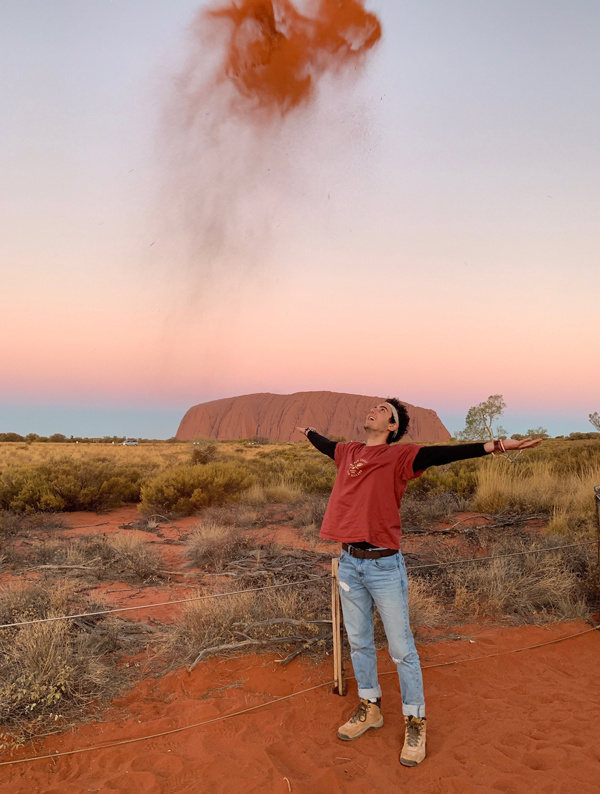
Dear prospective study abroad students,
My name is Omar Khodor, and I’m a senior studying environmental science with a minor in Arabic and biology, and a certificate in sustainability. In the spring of 2019, I studied abroad in Melbourne, Australia, and was fortunate to travel to several other locations like New Zealand, South Korea, and Singapore.
Within Australia, I traveled through Sydney, Cairns, Adelaide, Tasmania, the Great Ocean Road, and the Outback. Among all of my travels, one thing was always guaranteed - I was asked about my ethnic background. My friends traveling with me were usually asked about their nationality, but the questions typically stopped after they explained they were from the United States.
However, for me, the questions delved deeper into my heritage and ethnicity. I’ve often gotten similarly worded questions in the United States - “where are you from originally?” or “what is your ethnic background?” - and I would be bothered by them on occasion. But I realized I was conditioned to be bothered by these questions in the U.S. Our surrounding culture, frequently reporting about a divided country or a racist administration, had caused my posture to tense anytime I was asked these questions. I began my college career during the 2016 presidential election, and my frame of perspective had been shaped by it ever since. I’d forgotten, having lived these years in the U.S., that people could have genuine interest and appreciation for your culture when questioning your background.
Particularly, I remember an occasion while renting a car where the front desk worker asked me where I was from. I responded, "The U.S.," to which she responded, “where are you from originally? I’m interested by your last name.” I warily told her I was Syrian, and she began to tell me about her sister-in-law in Norway who was also Syrian, and we talked about her wishes to become more knowledgeable on the culture. For all of my barriers I’d built up in the U.S., I felt relieved to be able to openly exchange cultural identities without the volatile backdrop that constantly nagged me in the U.S. I felt as if people were actually interested in my story and background.
Opposingly, I was accustomed to feeling defensive and anxious when I received this question in the U.S. In general, I felt I could accept questions about my ethnic background while in Australia without suspicion of underlying racist sentiments.
"Wherever you travel, whether your identity is accepted by mainstream society or your identity is relegated to the fringes of society, remember it is always your duty to fight for yourself and for others who endure mistreatment. "
I counted myself lucky in Australia. I didn’t meet anyone especially hateful toward Arabs, and I was typically surrounded by a diverse community. Yet, while in Australia, I was surprised just how similar their mistreatment of indigenous populations is to the historical mistreatment of indigenous populations in the United States. For the first time in a long time, my ethnic identity wasn’t necessarily the targeted group in the local media, nor did I feel pressure to keep my identity concealed in public. From this perspective, I realized my position wasn’t to remain content in my newfound comfort, but to advocate for those marginalized in society. Wherever you travel, whether your identity is accepted by mainstream society or your identity is relegated to the fringes of society, remember it is always your duty to fight for yourself and for others who endure mistreatment.
Best of luck,
Omar Khodor
Please note that the opinions and views expressed by diversity ambassadors are solely those of the students and do not reflect or represent the views of International Programs or the University of Iowa.